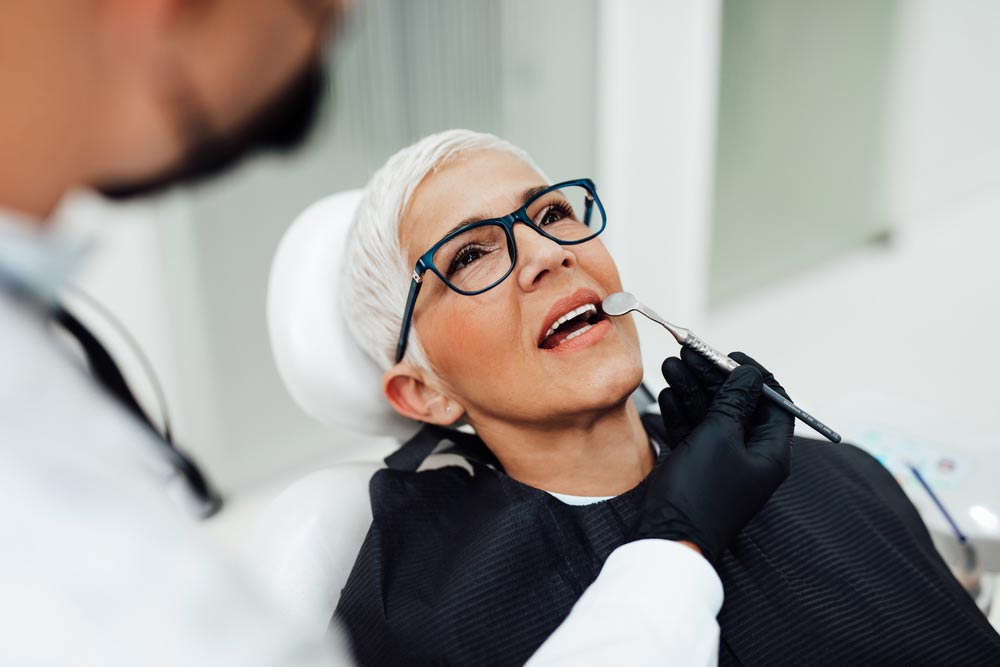As we age, our bodies go through many changes, and our oral health is no exception. As a senior, you may face unique challenges when it comes to keeping your teeth and gums healthy. That’s why it’s important to understand how aging affects your oral health and what you can do to maintain good oral hygiene. In this blog post, Sonora dentist Dr. Justin Liggett shares important information and tips for senior oral health.
Gum Disease
One of the most common oral health issues that seniors face is gum disease. As you age, your risk of developing gum disease increases. This is because your gums may start to recede, exposing the roots of your teeth and making them more vulnerable to bacteria. If left untreated, gum disease can lead to tooth loss, infections, and even serious health problems like heart disease.
To prevent gum disease, it’s important to practice good oral hygiene. This includes brushing your teeth at least twice a day with fluoride toothpaste, flossing daily, and visiting your dentist regularly for check-ups and cleanings. If you notice any signs of gum disease, such as bleeding or swollen gums, make sure to see your dentist right away.
Tooth Decay
As we age, our teeth become more susceptible to decay. This is because the protective enamel on our teeth may start to wear down over time, exposing the softer, more vulnerable dentin layer. Additionally, seniors may be more likely to develop dry mouth, which can lead to tooth decay. Dry mouth is a common side effect of many medications, so it’s important to talk to your doctor if you’re experiencing this issue.
To prevent tooth decay, it’s important to brush and floss regularly and visit your dentist for check-ups and cleanings. Your dentist may also recommend fluoride treatments or dental sealants to help protect your teeth.
Denture Care
Many seniors wear dentures, which require special care to maintain. To keep your dentures clean and free of bacteria, it’s important to brush them daily with a soft-bristled brush and denture cleaner. You should also soak them in water or a denture-cleaning solution overnight. If your dentures become loose or uncomfortable, make sure to see your dentist for adjustments.
Overall, maintaining good oral hygiene is essential for senior oral health. By brushing and flossing regularly, visiting your dentist for check-ups and cleanings, and taking good care of your dentures (if you wear them), you can keep your teeth and gums healthy as you age. If you have any questions or concerns about your oral health, don’t hesitate to contact Dr. Liggett at Morning Star Dentistry.


